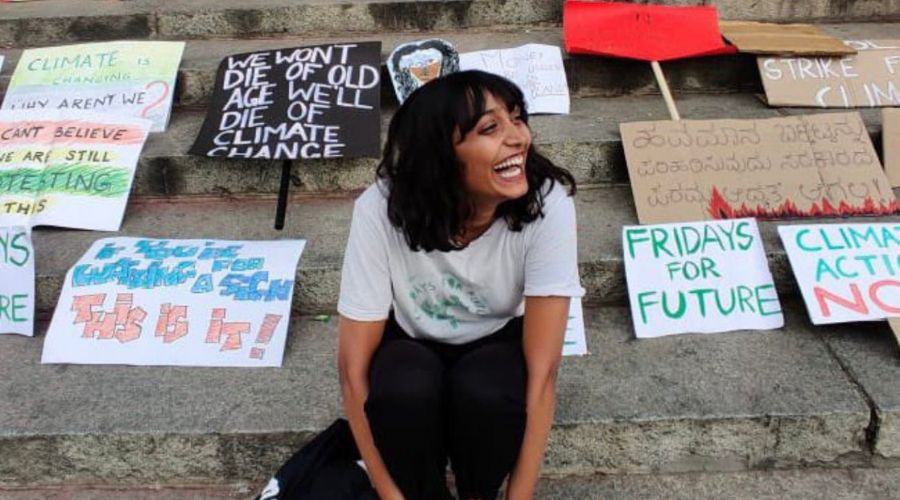Delhi police on Thursday told Delhi High Court that it had not leaked any material to the media in relation to its probe in the FIR against climate activist Disha Ravi for her alleged involvement in sharing a toolkit backing the ongoing farmers’ protest.
The court was hearing Disha’s plea to restrain police from leaking to the media any probe material in relation to the FIR lodged against her.
The submission was made before Justice Prathiba M. Singh by solicitor-general Tushar Mehta, appearing for the police.
The court asked the police to file an affidavit containing its submission that it had not leaked any material relating to the investigation to the media.
Since there were no counsel representing the News Broadcasting Standards Authority (NBSA) and some of the media houses named in Disha’s petition, the court issued notice to them and said it would hear the matter on Friday.
The petition has also sought to restrain the media from publishing the content or extract of any private chats, including those on WhatsApp, between her and third parties.
Disha said she was “severely aggrieved and prejudiced by the media trial surrounding her arrest and the ongoing investigation, where she is being viscerally attacked by the respondent 1 (police) and several media houses”. She claimed that her arrest from Bangalore on February 13 by a cyber cell team of Delhi police was “wholly unlawfully and without basis”.
She also contended that in the present circumstances, it was “highly likely” that the general public would perceive the news items “as being conclusive as to the guilt of the petitioner (Disha)”.
“In these circumstances, and to restrain the respondents from further violating her privacy, her reputation, and her right to a fair trial, the petitioner is moving the present petition,” the plea has said.
Disha’s plea has further contended that the ministry of information and broadcasting and the NBSA “have failed to exercise their statutory and self-regulatory powers in ensuring compliance with the Programme Code under the CTN Act and the Code of Ethics of National Broadcasting Standards Association”.
Delhi police, probing the “toolkit Google doc” backing the farmers’ agitation shared by climate activist Greta Thunberg, had arrested Disha while Mumbai lawyer Nikita Jacob and Pune engineer Shantanu Muluk have been granted pre-arrest bail by court.
A Delhi court had on February 14 sent Disha to five-day police custody after the agency said her custodial interrogation was required to probe an alleged larger conspiracy against the government of India and to ascertain her alleged role relating to the Khalistan movement.
A toolkit is a document created to explain any issue. It also provides information on what one needs to do to address the issue. This might include information about petitions, details about protests and mass movements.
Delhi police had earlier asked Google and some social media giants to provide information about email ID, URLs and certain social media accounts related to the creators of the toolkit shared by Swedish climate activist Greta Thunberg and others on Twitter in connection with the farmers’ protest.
The cyber cell had lodged an FIR against “pro-Khalistan” creators of the toolkit for waging a “social, cultural and economic war against the government of India”.
The case against unnamed persons was registered on charges of criminal conspiracy, sedition and various other sections of the Indian Penal Code (IPC).
The toolkit was aimed at spreading disaffection and ill-will against the government of India and creating disharmony among various social, religious and cultural groups, the police had claimed.











